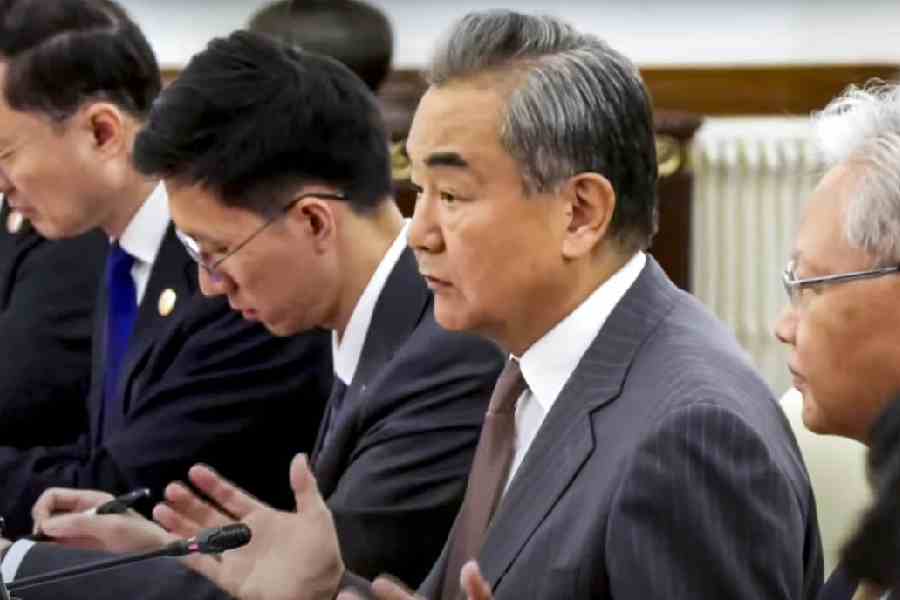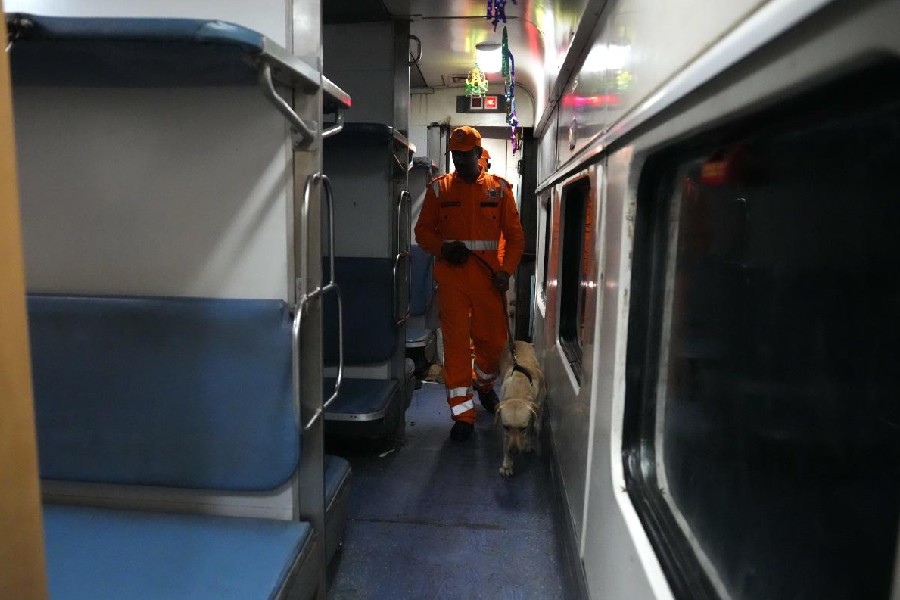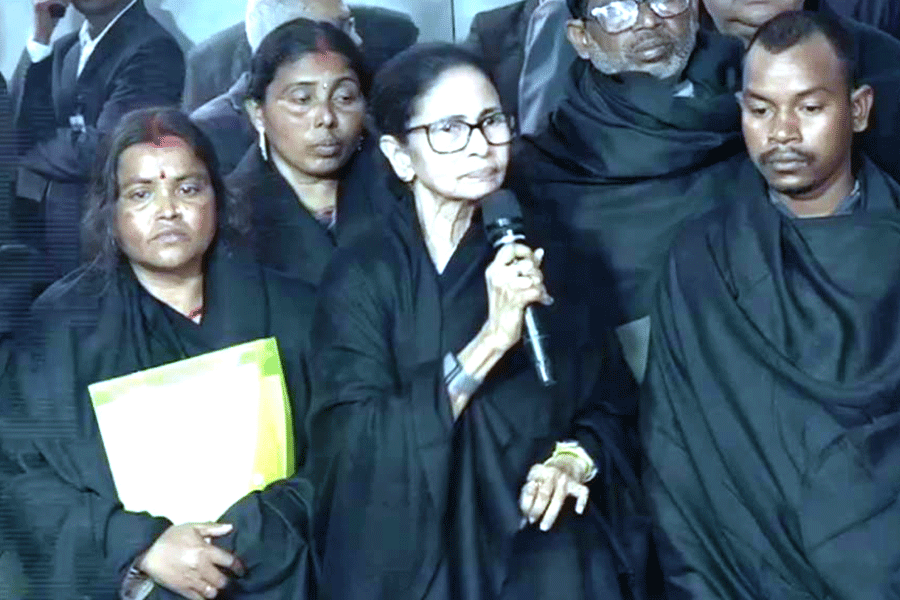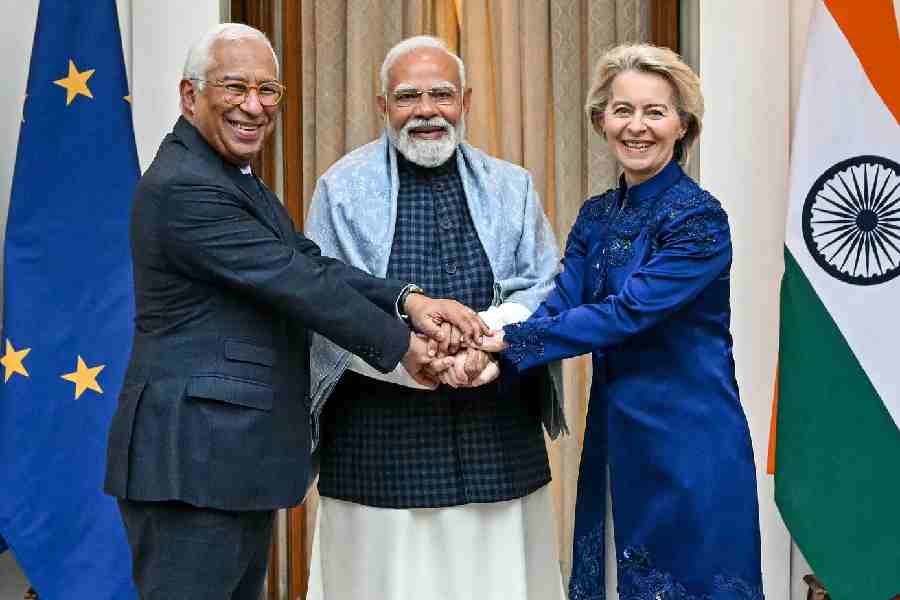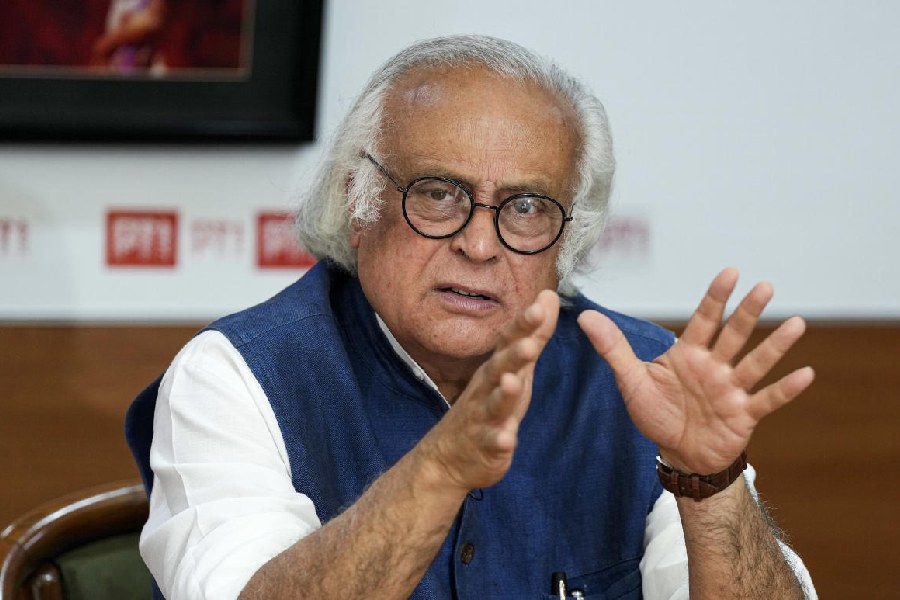The India-China border has been “quiet” and there has been an “upward trend” in bilateral ties, national security adviser Ajit Doval told visiting Chinese foreign minister Wang Yi in Delhi on Tuesday.
Doval was speaking at the 24th round of special representative-level talks on the long-standing border dispute between the two countries.
He also announced that Prime Minister Narendra Modi would visit China for the upcoming summit of the Shanghai Cooperation Organisation (SCO) to be held in Tianjin on August 31 and September 1.
“There has been an upward trend. Borders have been quiet. There has been peace and tranquillity and our bilateral relations have been more substantial,” Doval said.
Both sides agreed to the reopening of border trade through the three designated trading points — Lipulekh Pass, Shipki La and Nathu La. The two countries hoped to resume direct flights at the earliest.
Relations between India and China took a serious hit following multiple incursions by the People’s Liberation Army (PLA) in eastern Ladakh in May 2020 and the deadly Galwan Valley clash in which 20 Indian soldiers were killed on June 15, 2020.
Without mentioning the ongoing military standoff in eastern Ladakh or the Galwan clash, the Chinese foreign minister, in his opening remark at the SR talks, said: “The setbacks we experienced in the past few years were not in the interest of the people of our two countries”.
Wang said China attached immense importance to Modi’s visit to attend the SCO summit and “the bilateral relationship is facing an important opportunity for improvement and growth”.
History and reality, he said, proved that a healthy and stable China-India relationship served the fundamental, long-term interests of both countries.
Referring to the last round of SR talks, Wang said. “We are heartened to see the stability that is now restored at the borders.”
The meeting between Modi and Xi last year “pointed the direction for the development of our bilateral relations and provided impetus for the proper settlement of the boundary question”, he said.
Sources said during the 24th round of SR talks, both sides were expected to deliberate on new confidence-building measures besides reviewing the overall situation along the Line of Actual Control (LAC).
According to the agreement with Beijing last October, the Chinese army disengaged from the last two PLA incursion points — the Depsang Plains and Demchok in Ladakh. The two sides are yet to de-escalate the situation by pulling back the frontline forces from the border. Each side continues to forward deploy over 60,000 troops along with weaponry along the LAC in eastern Ladakh.
Uncertainty persists over the buffer zones that were earlier created by altering the status quo at multiple transgression points, including the Galwan Valley.
There had been “partial” Chinese disengagement from the Galwan Valley, the south and north banks of the Pangong Lake, Hot Springs and Gogra. Indian troops have also retreated within the Indian territory by an equal distance to create demilitarised “buffer zones”.
“Why is the government maintaining silence on these buffer zones that were created on Chinese terms? Unless the Chinese army completely disengages from these points, India cannot claim to have returned to the pre-April 2020 situation on the frontier. Peace and tranquillity at the border can be achieved only when there is complete restoration of status quo at multiple transgression points in eastern Ladakh,” a former lieutenant general told The Telegraph.
Former Border Security Force chief Prakash Singh said New Delhi should not walk into the “Chinese trap”, as they were still occupying India’s territory.
“India must not walk into the Chinese trap and remember that they are holding on to 38k sqkm of Indian territory, not de-escalating their troops on border, claim Arunachal, equipping Pak with submarine and stealth fighters, have reservations about giving rare earth metals to India, building railway line right up to LAC, will covertly help Pak in next round of conflict etc,” Singh posted on X on Tuesday.
“We may embrace China only after the border issue is resolved to our satisfaction and they admit our claim over PoK,” he added.
On Monday, external affairs minister S. Jaishankar had, during a meeting with Wang, said the “process of de-escalation” from the military build-up along the LAC must “move forward”.
“The basis for any positive momentum in our ties is the ability to jointly maintain peace and tranquillity in the border areas. It is also essential that the de-escalation process move forward,” Jaishankar said.
Dam, terror concerns
India on Tuesday raised concerns over the mega dam construction being undertaken by China in the lower reaches of the Yarlung Tsangpo (Brahmaputra) close to the border with Arunachal Pradesh.
“The need for utmost transparency in this regard was strongly underlined,” the external affairs ministry said in a statement.
Indian also raised the issue of terrorism in all its forms and manifestations, including cross-border terrorism, recalling that one of the original objectives of the SCO was to counter the evil of terrorism.
“Minister Wang Yi concurred that countering terrorism should be given the highest priority,” the statement added.
Wang also called on Prime Minister Narendra Modi.
Modi “emphasised the importance of maintaining peace and tranquillity on the border, and reiterated India’s commitment to a fair, reasonable and mutually acceptable resolution of the boundary question”, a statement issued by the PMO said.

